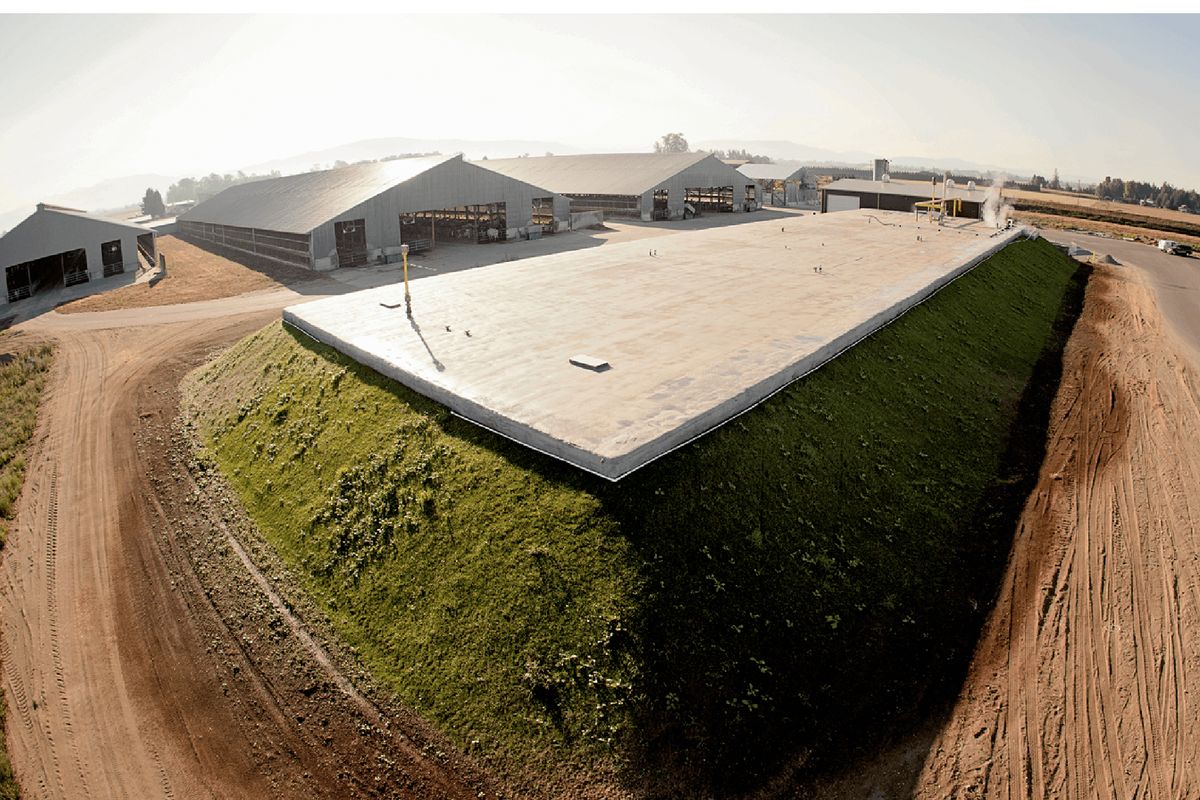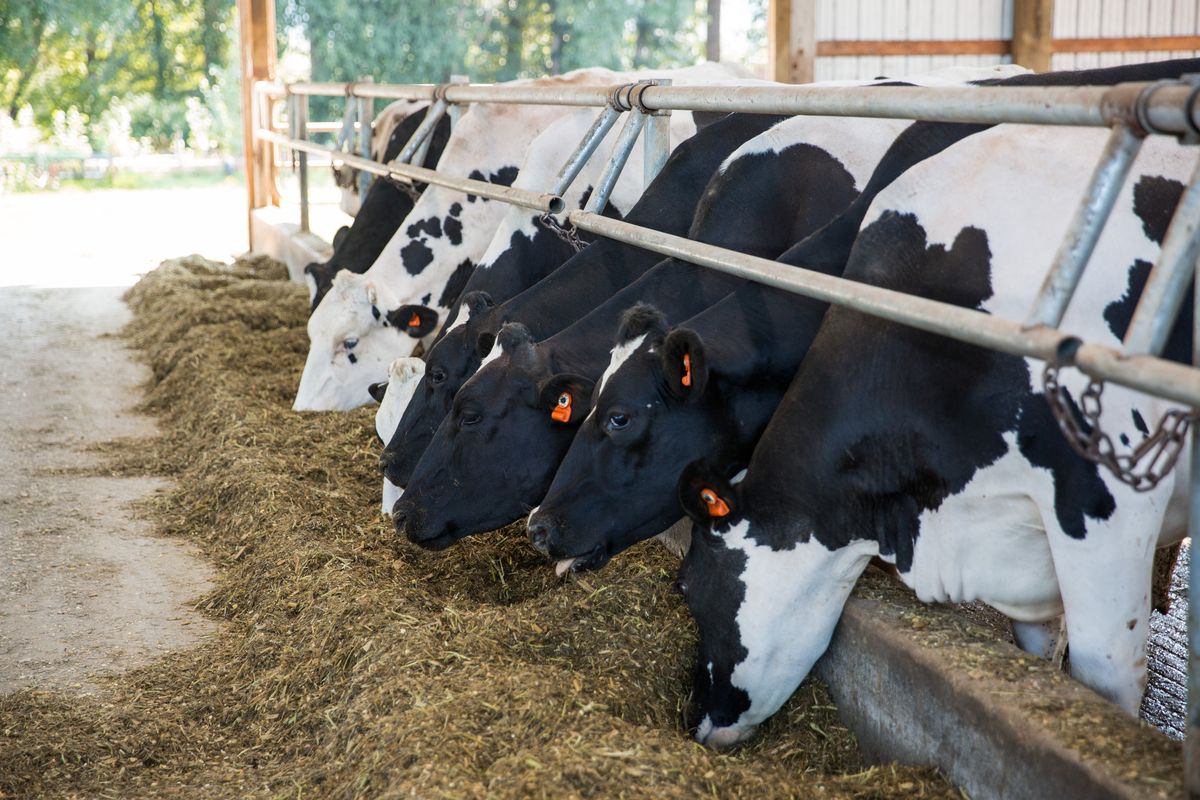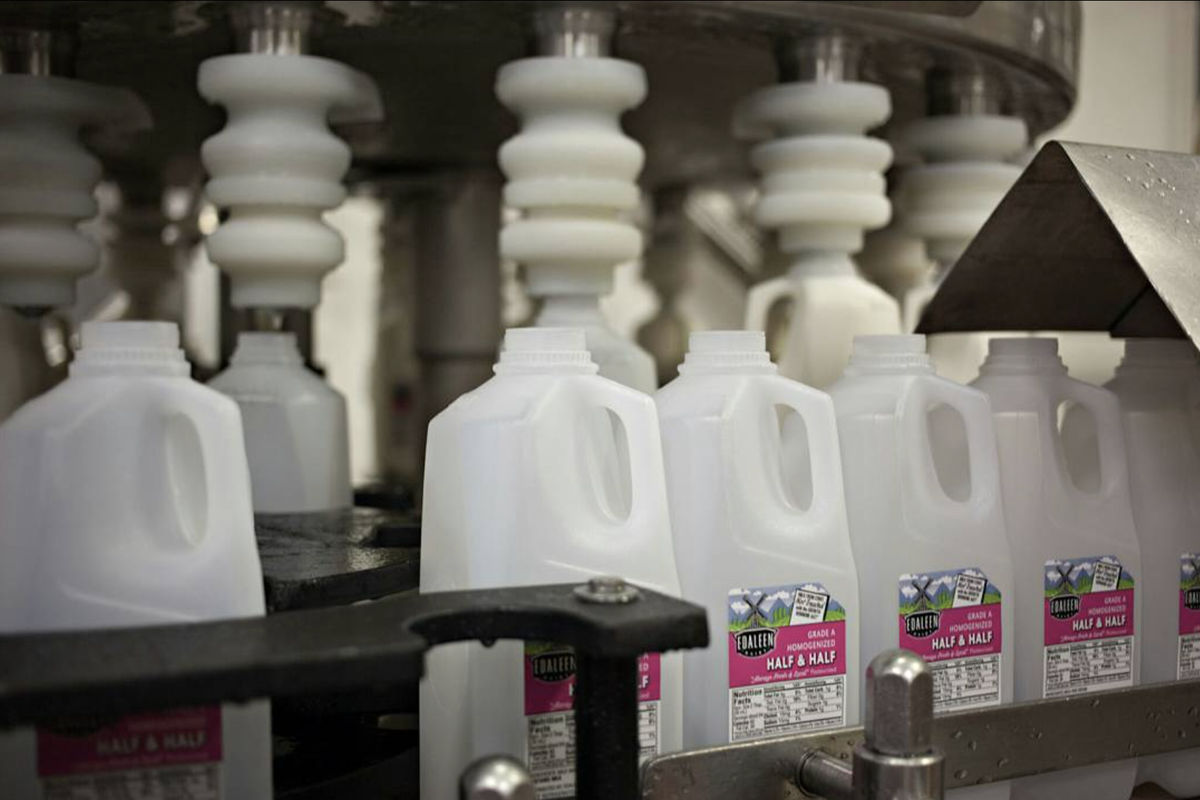Support local farmers and lower your carbon footprint
Edaleen offers milk and other products. (Courtesy Dairy Farmers of Washington)
Sustainable living is more important today than ever before. Buying locally produced dairy is one simple way to make a difference in your daily life and contribute to a healthier environment. With every purchase of milk, cheese, or yogurt, you can help minimize your carbon footprint and support the local economy.
And there’s more at work when you buy local than just freshness and quality. Here are a couple other reasons:
- Economic Impact: Did you know that 96% of dairy farms in Washington are family-owned? Buying from them helps keep family farms alive and rural communities strong.
- Environmental Benefits: Purchasing from local communities reduces the carbon footprint of transporting products over long distances—milk from Washington goes from the farm to your grocery store in 48 hours, making sure you get the freshest product possible.
When you buy from local farmers, you also promote sustainable agricultural practices. Many of our farmers prioritize environmental stewardship, using methods like rotational grazing, crop rotation, and energy-efficient technologies. These practices benefit the environment and that Washington dairy products are of the highest quality.
Sustainable Production of Milk
Sustainable milk production is about implementing practices that benefit the environment, enhance animal welfare, and provide economic benefits to the community:
- Energy Efficiency: Many modern dairy farms are embracing energy-efficient technologies that help reduce their impact. These include things like efficient robotic milking machines, feed pushers and updated cooling systems.
- Water Conservation: Dairy farms also work to follow sustainable water practices by installing systems that catch and recycle water from milking. Doing so helps preserve and reuse water while reducing the overall watermark of the farm.
- Waste Management: Manure is converted to fertilizer to ensure healthy soil and reduced waste. Some farms run manure through anaerobic digesters to produce biogas and become a source of renewable energy.
For example, Edaleen Dairy in Lynden showcases these principles in action. They’ve installed an anaerobic digester that helps cut greenhouse gas emissions and takes in waste from nearby food manufacturers to produce energy for their operations.
“Anything that is pre-consumer food waste… could be food processing plant wastewater, grease trap material, chicken rendering plants, or outdated beer or wine, as a few examples,” said Mitch Moorlag, owner of Edaleen Dairy.
How You Can Support Sustainable Dairy
You play a vital role in supporting sustainable dairy farming practices. By making informed choices and supporting local farmers, you can help promote environmental stewardship and ensure the continued availability of high-quality, local products. Here are some practical steps you can take:
- Buy Local: Purchase dairy products from local farms and farmers’ markets. This sslkupports the local economy and reduces the carbon footprint of transportation.
- Reduce Waste: Store dairy properly to extend its shelf life and use leftovers creatively. For example, make smoothies with leftover yogurt or cheese sauces with extra cheese. Check out the Taste, not Waste resources on our website for more tips.
- Stay Informed: Learn about the practices of the brands you buy and choose those that match your values.
Easy Ways to Enjoy Dairy, More Sustainably
Incorporating dairy into your diet sustainably involves more than just buying locally.
- Plan Your Meals: Meal planning can help to make sure you use all the dairy products you buy before they go bad, which can help reduce food waste and make your shopping more efficient.
- Choose Reusable Containers: When you can, choose products in reusable or recyclable packaging to help reduce waste.
- Support Eco-Friendly Brands: Many dairy brands focus on sustainability. Try to support these brands by purchasing their products and encouraging others to do the same.
By adopting these practices, you not only enjoy delicious, nutritious dairy products but also contribute to a healthier planet and a stronger local economy. Next time you reach for a gallon of milk or a tub of yogurt, consider the journey from farm to fridge—and choose options that are good for both you and the environment.
Want more on happy cows and sustainable dairy, plus local brands near you? Visit wadairy.org.


